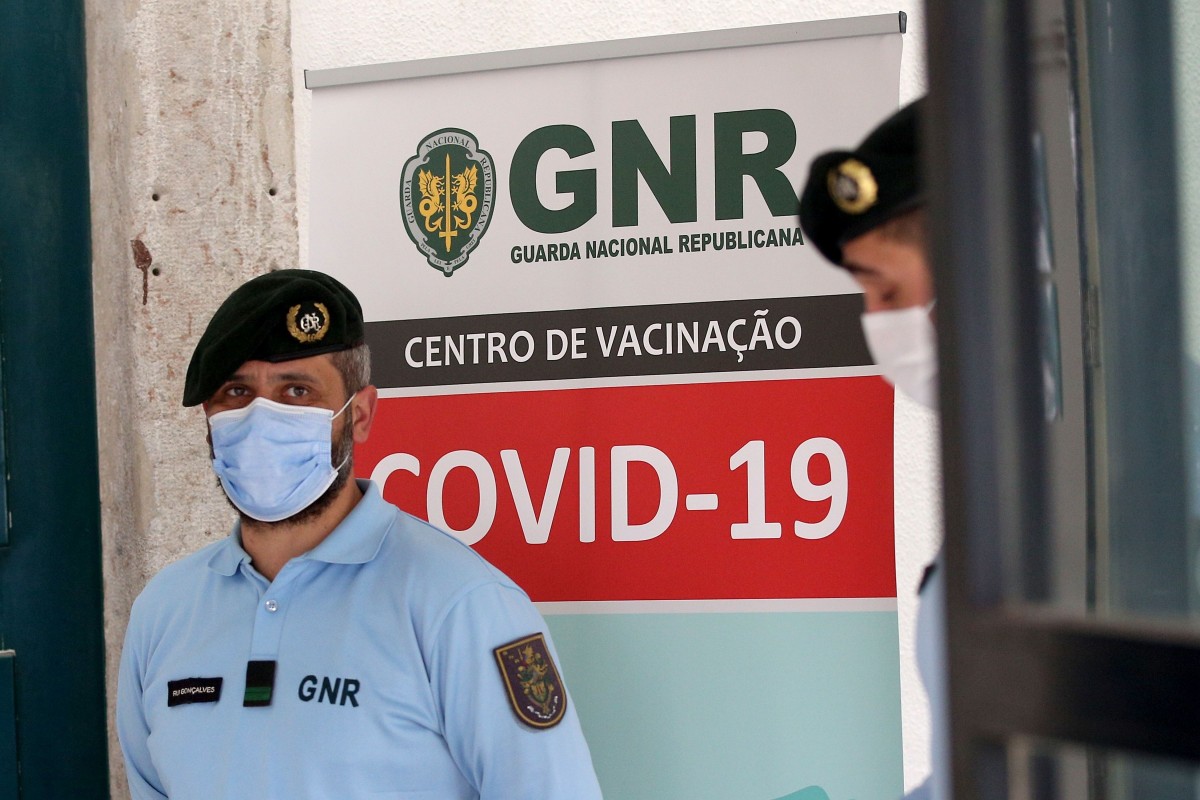Portugal: Some Room For Optimism
An extension of the lockdown does not bode well for economic activity, but we still think it will rise significantly from the second quarter onwards.

A member of Portugal's National Guard at a vaccination centre in Lisbon
It was a terrible beginning of the year for Portugal. The number of new infections moved from about 3,000 at the beginning of January to more than 16,000 at the end. A new lockdown was inevitable and came into force on January 15th. Non-essential services were closed, remote work made compulsory where possible and schools were shut. During February, the number of new infections came down and the latest figures show fewer than 1,000 daily new cases. Last week, however, the current lockdown was extended to at least March 16th. President Marcelo Rebelo de Sousa said the pressure on hospitals remains high.
This implies that the lockdown applied for at least two-thirds of the first quarter and this does not bode well for economic activity. The Portuguese economy managed to avoid another contraction in the fourth quarter of 2020 (it grew by 0.2% quarter-on-quarter), while the number of infections rose. It is unlikely that this will be repeated in the first quarter of 2021. We think that the economy will contract by 1.5% quarter-on-quarter.
The impact of the second lockdown will in our view not be as strong as the first
The impact of the second lockdown will in our view not be as strong as the first as consumers and businesses have adapted to this new situation. Indeed, consumer and business confidence remains low but was not impacted as strongly as during the first lockdown. Consumer confidence even rose in January and February. And obviously, retail sales dropped significantly in January due to the lockdown measures but to a lesser extent than in March, a month which also had two weeks of lockdown. In January retail trade turnover (seasonally and calendar adjusted) dropped by 4.8%, while it fell by a whopping 12% in March.
From the second quarter onwards we expect growth to pick up. Tourism is likely to support growth significantly. In January the overnight stays were 78% lower compared to a year ago and 54% of tourist accommodation establishments were closed. We expect this to change in the coming months adding to economic activity. During the second half of the year, we expect public investment to grow on the back of the Next Generation EU recovery plan. For 2021 as a whole, we expect the economy to grow by about 4% and by 4.5% in 2022.
Disclaimer: This publication has been prepared by ING solely for information purposes irrespective of a particular user's means, financial situation or investment objectives. The information does ...
more


